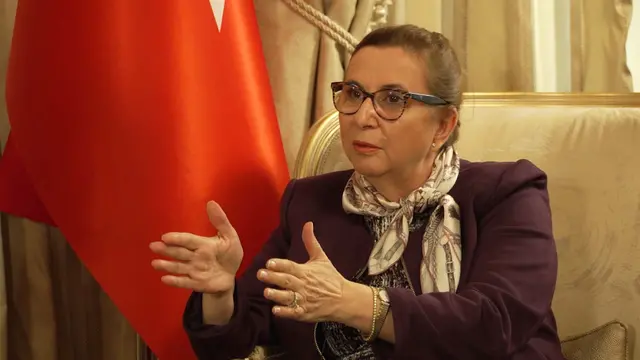The Turkish economy will outdo its last year's performance and exceed expectations in 2020, according to its trade minister Ruhsar Pekcan, even as the country shook off a recession last year and a record high unemployment rate.
Speaking to CGTN at the sidelines of the World Economic Forum in Davos, Switzerland, Pekcan said that Turkey performed well last year despite trade and geopolitical uncertainties.
The Turkish minister highlighted challenges faced by the global economy due to protectionist policies and uncertainties. She talked about the Brexit situation in the UK and unrest in Libya, Syria, Lebanon and Iraq as well as protests in Hong Kong, Lebanon, France and Latin America. The IMF had revised expectations for the global economy while WTO expected trade growth to drop, she said.
In this context, Pekcan believes that Turkey was very successful in 2019 and will be much better than expected in 2020.
Turkey's economy experienced a recession in the second half of 2018, but managed a reversal to positive growth in 2019. The Turkish government had forecast 0.5 percent growth for the and five percent growth in 2020.
Pekcan said trade performance was an indicator of the country's recovery, citing a 2.6 percent increase in exports in the first nine months of 2019, while citing WTO data that top 50 countries had on average a 2.7 percent decrease in exports in the first nine months of 2019.
"So I believe [in] our traders and industrialists who managed well in 2019 under these negative effects. I believe we will be able to do more in 2020," she said.
Commenting on the world's sustainability concerns, Pekcan said, "So these protectionist policies are getting worse day by day. This will affect trade growth. These protectionist policies do not serve anybody; neither the developing countries and nor the developed countries."
She cited WTO's downgrade of global trade growth to 1.2 percent, from four percent, and the expectation for 2.7 percent in 2020, which was far lower than the average for the last decade of 4.2 percent.
(CGTN)
 简体中文
简体中文

